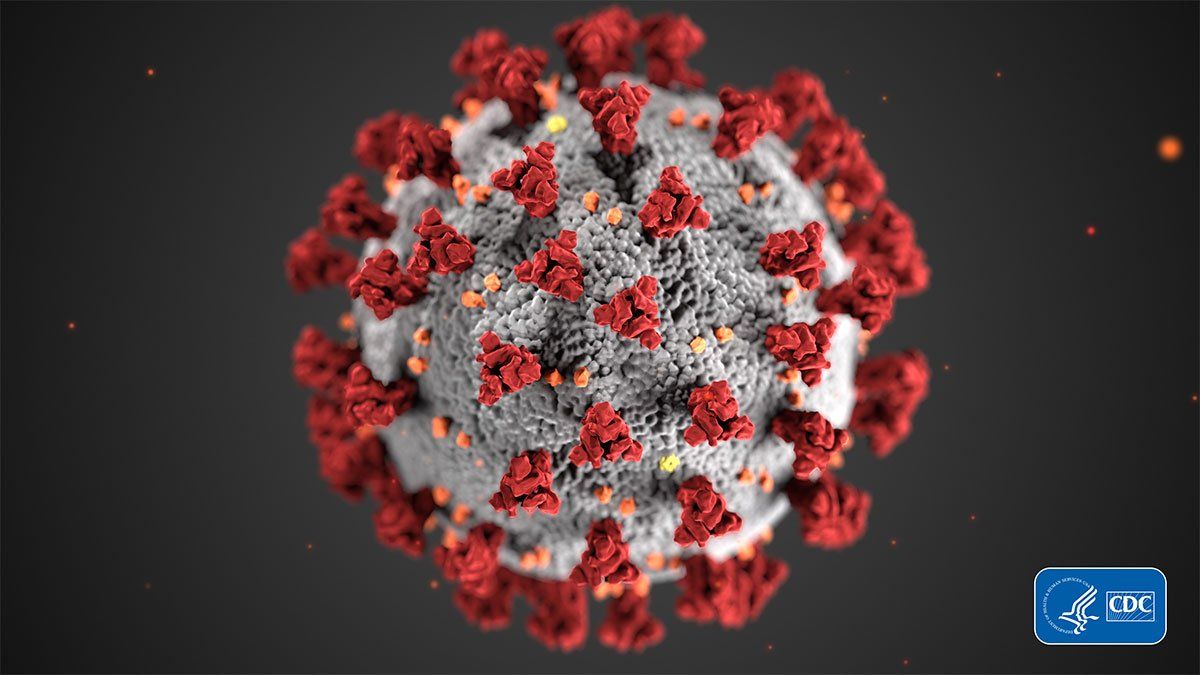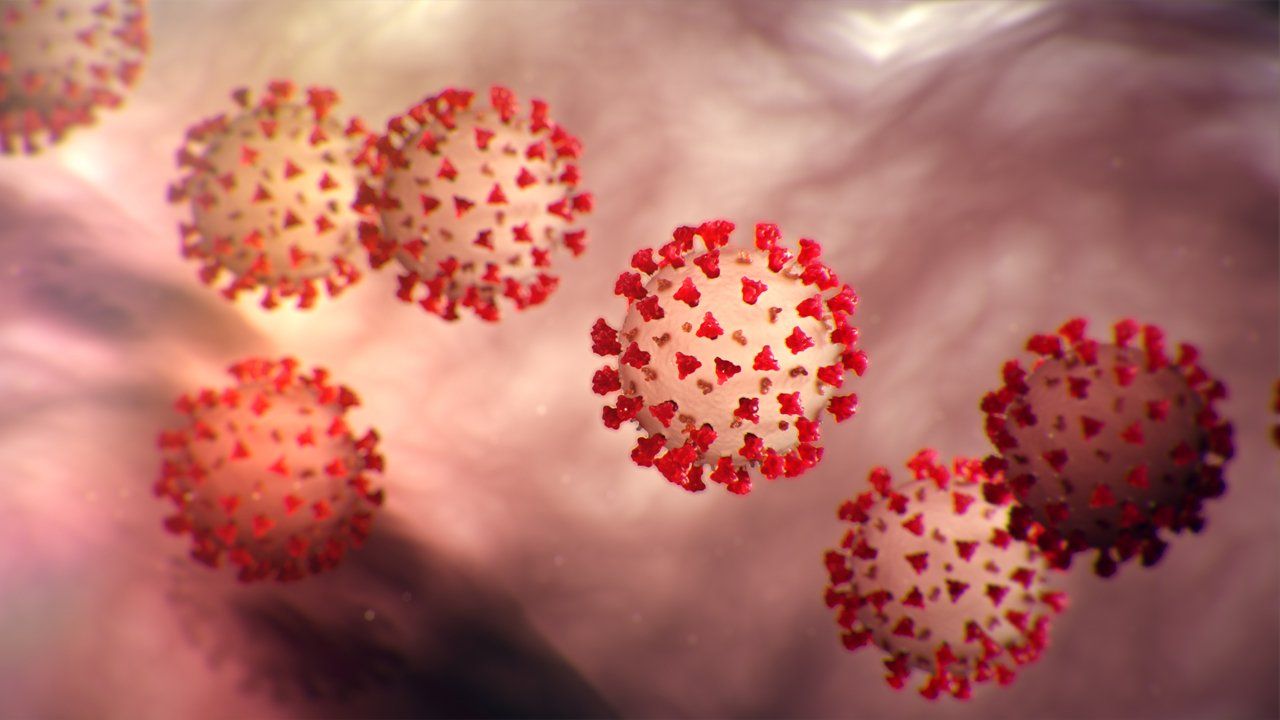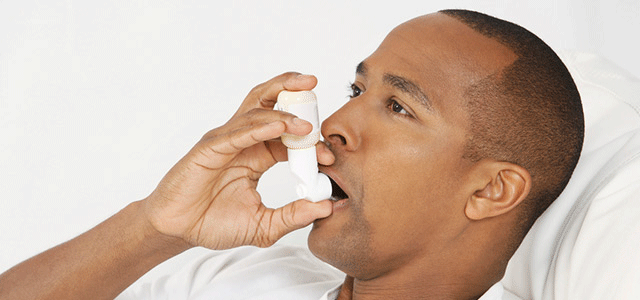Blog Layout
What is Asthma?
Feb 29, 2020
Asthma is a condition that can make it hard to breathe. Asthma does not always cause symptoms. But when symptoms occur, they can be scary. Asthma attacks happen when the airways in the lungs become narrow and inflamed. Asthma can run in families.
What are the symptoms of asthma?
Asthma symptoms can include:
- Wheezing or noisy breathing
- Coughing
- A tight feeling in the chest
- Shortness of breath
Is there a test for asthma?
Yes. Your doctor will ask you about your symptoms and have you do a breathing test to see how your lungs are working.
How is asthma treated?
Asthma is treated with different types of medicines. The medicines can be inhalers, liquids, or pills. Your doctor will prescribe medicine based on how often you have symptoms and how serious your symptoms are. Asthma medicines work in one of two ways:
- Quick-relief medicines stop symptoms quickly — in 5 to 15 minutes. Almost everyone with asthma has a quick-relief inhaler that they carry with them. People use these medicines whenever they have asthma symptoms. Most people need these medicines 1 or 2 times a week—or less often. But when asthma symptoms get worse, more doses may be needed. Some people can feel shaky after taking these medicines.
- Long-term controller medicines control asthma and prevent future symptoms. People with frequent asthma symptoms take these one or two times each day.
It is very important that you take all the medicines the doctor prescribes, exactly how you are supposed to take them. You might have to take medicines a few times a day. You might not feel a medicine working, but that does not mean it is not helping you.
Asthma that is not treated with the right medicines can damage the lungs. Plus, not taking your medicines correctly can cause symptoms to get worse and even require a trip to the hospital.
What is an asthma action plan?
An asthma action plan is a list of instructions that tell you:
- Which medicines to use each day at home
- Which medicines to take if your symptoms get worse
- When to get help or call 9-1-1
If you have frequent or severe asthma symptoms, your doctor might suggest that you have an asthma action plan. If so, you and your doctor will work together to make one. As part of your action plan, you may need to use something called a “peak flow meter.” Breathing into this device will show how your lungs are working. Your doctor will show you the right way to use your inhaler and peak flow meter.
Should I see a doctor or nurse?
Yes. Call 9-1-1 for an ambulance if you have a severe asthma attack and your symptoms:
- Get worse or
- Do not improve after using a quick-relief medicine
What are some triggers of asthma?
- Dust
- Mold
- Animals, such as dogs and cats
- Pollen and plants
- Cigarette smoke
- Getting sick with a cold or flu (that’s why it’s important to get a flu shot)
- Exercise
- Stress
If you need asthma medicine every day, you should see your doctor every 6 months or more often.
Can asthma symptoms be prevented?
Yes. You can help prevent your asthma symptoms. You can stay away from things that cause your symptoms or make them worse. Doctors call these “triggers.” If you know what your triggers are, avoid them as much as possible. Some common triggers include:
If you can’t avoid certain triggers, talk with your doctor about what you can do. For example, exercise can be good for people with asthma. But you may need to take an extra dose of your quick-relief inhaler medicine before you exercise.
What if I want to get pregnant?
If you want to get pregnant, talk to your doctor about how to control your asthma. Keeping your asthma well-controlled is important for the health of your baby. Most asthma medicines are safe to take if you are pregnant

18 Mar, 2020
Dear Patients & Families, Athens Pulmonary & Sleep Medicine is committed to the health and safety of our patients, staff, and community. As we continue to closely monitor the coronavirus (COVID-19) situation, we want to assure you that we are taking necessary precautions to ensure your safety as recommended by the Centers for Disease Control (CDC) and local authorities. As an added precaution, we ask that you please assist us by doing the following during your visit to our locations: ALL PATIENTS and STAFF will go through a verbal screening process upon entering our buildings, before entering the waiting rooms. Screening questions will relate to: If you have traveled outside the U.S. or any area with active coronavirus cases; If you are currently experiencing any flu-like symptoms such as fever, body aches or cough; or if you have been in contact with anyone who has been diagnosed with the coronavirus NO companions/caregivers will be allowed inside with patients. ANY PATIENT experiencing any of the above symptoms or who has been in contact with anyone with the above symptoms will not be permitted to enter our building and we will gladly reschedule his/her appointment to a later date. ALL PATIENTS and STAFF will be required to sanitize their hands with disinfectant supplies provided at the point of entry into our buildings. In the coming days, Athens Pulmonary will reschedule all routine follow-up appointments . If you have a scheduled, essential appointment, please plan to keep this appointment unless you are experiencing symptoms like fever, cough, congestion, sore throat, runny nose or shortness of breath. Please arrive on time for your appointment, rather than too early in an effort to minimize the amount of time you will spend in our waiting room. In addition, if you are limiting your exposure to the public or would like to reschedule your appointment for any other reason, we will be happy to do that and, if necessary, provide refills by request. If you are a patient who is experiencing symptoms of COVID-19, please call our office (706) 549-5560 to speak with our Triage Nurse. We will continue to diligently monitor developments and update our patients and staff accordingly. you have any other questions about your visit or scheduling a visit, contact our office directly. In addition to the regulations, the following measures have been put in place at our facility: Our medical office spaces are continuously cleaned as part of our normal course of business, and we will maintain rigorous standards including cleaning and disinfecting high-touch, high-traffic areas. Our offices are stocked with quality hand soap and disinfectant supplies. We are ensuring that our employees have the information they need to stay healthy. Employees not feeling well in any regard will not be allowed in the workplace. Limiting the amount of contact that our patients have with shared objects can help reduce the spread of certain infections, including COVID-19. Therefore, we have removed all magazines, books and other reading material from our waiting areas and exam rooms When a Caregiver is necessary, we will limit the number of Caregivers to one. Patients and caregivers will be screened at the entrance doors. Athens Pulmonary prides itself in the commitment to maintain a safe environment for both our employees and patients while continuing to deliver the best medical care possible. We want to thank you for the trust you have placed in our providers and staff and appreciate your help and support in helping us with the safety measures we have put into place. If you think you may have been exposed to coronavirus or are experiencing symptoms, please call 866-460-1119. PLEASE NOTE: Our office does not provide testing for COVID-19 (Coronavirus) Best Regards, The Providers and Staff at Athens Pulmonary & Sleep Medicine Things you should know: According to the Centers for Disease Control & Prevention: “For most of the American public, who are unlikely to be exposed to this virus at this time, the immediate health risk from COVID-19 is considered low.” The CDC is now recommending that anyone who has traveled to a Level 3 country – even if they don’t have any symptoms – to self-isolate for 14 days. As of March 9, 2020, these countries include China, Iran, Italy and South Korea. Instructions for self-isolation are on the CDC website . For the large majority of patients who may have flu-like symptoms, testing for Coronavirus is still not necessary. There are many reasons why someone may have fever, cough, shortness of breath. If you have severe symptoms that are getting worse, go to an emergency room and mask yourself as soon as you can. The interim guidance in the following link is for staff at local and state health departments, infection prevention and control professionals, and healthcare personnel who are coordinating the home care and isolation of people with confirmed or suspected COVID-19 infection, including persons under investigation |Interim Guidance for Implementing Home Care of People Not Requiring Hospitalization for Coronavirus Disease 2019 (COVID-19) Athens Pulmonary patients and visitors: FAQ Family members and caregivers: Family and caregivers (and patients who have symptoms of COVID-19) will not be permitted inside the clinic. The CDC outlines recommendations for how to prevent the spread of the Coronavirus in homes and residential communities here. Are patients screened for respiratory symptoms? Yes, all patients will be screened for symptoms of respiratory illness at the entrance of the clinic. Should I wear a mask in the clinic? You should wear a mask in the clinic only if directed to do so by staff. Infection Control: Athens Pulmonary has extensive and thorough infection control procedures, and we will do everything we can to ensure the health and safety of our community. We have protocols and systems in place to keep all patients, visitors and healthcare workers safe. Have there been any COVID-19 exposures at Athens Pulmonary? At this time, Athens Pulmonary has not had a positive case of COVID-19. How can I prevent the spread of COVID-19? The Centers for Disease Control & Prevention recommends everyday preventive actions to help prevent exposure: Wash your hands often with soap and water for at least 20 seconds especially after you have been in a public place, or after blowing your nose, coughing, or sneezing. Avoid touching your eyes, nose, and mouth with unwashed hands. Avoid close contact with people who are sick Put distance between yourself and other people if COVID-19 is spreading in your community. This is especially important for people who are at higher risk of getting very sick. Stay home if you are sick, except to get medical care. Learn what to do if you are sick. Clean AND disinfect frequently touched surfaces daily. This includes tables, doorknobs, light switches, countertops, handles, desks, phones, keyboards, toilets, faucets, and sinks.

By Athens Pulmonary & Sleep Medicine
•
11 Mar, 2020
As your healthcare provider, we are doing everything we can to ensure the safety of our patients, staff and visitors. From the beginning of the COVID-19 (Coronavirus) outbreak, we’ve been working closely with the Centers for Disease Control and Prevention (CDC), and other agencies to stay up to date with the latest information.
ADDRESS
Athens Pulmonary & Sleep Medicine3320 Old Jefferson Rd.Bldg 200 | Suite A & BAthens, GA 30607
CLINIC HOURS
- Mon - Thu
- -
- Friday
- -
- Sat - Sun
- Closed
© 2024
All Rights Reserved | Athens Pulmonary & Sleep Medicine, PC
Website Design |
BAC MediaGroup, LLC


